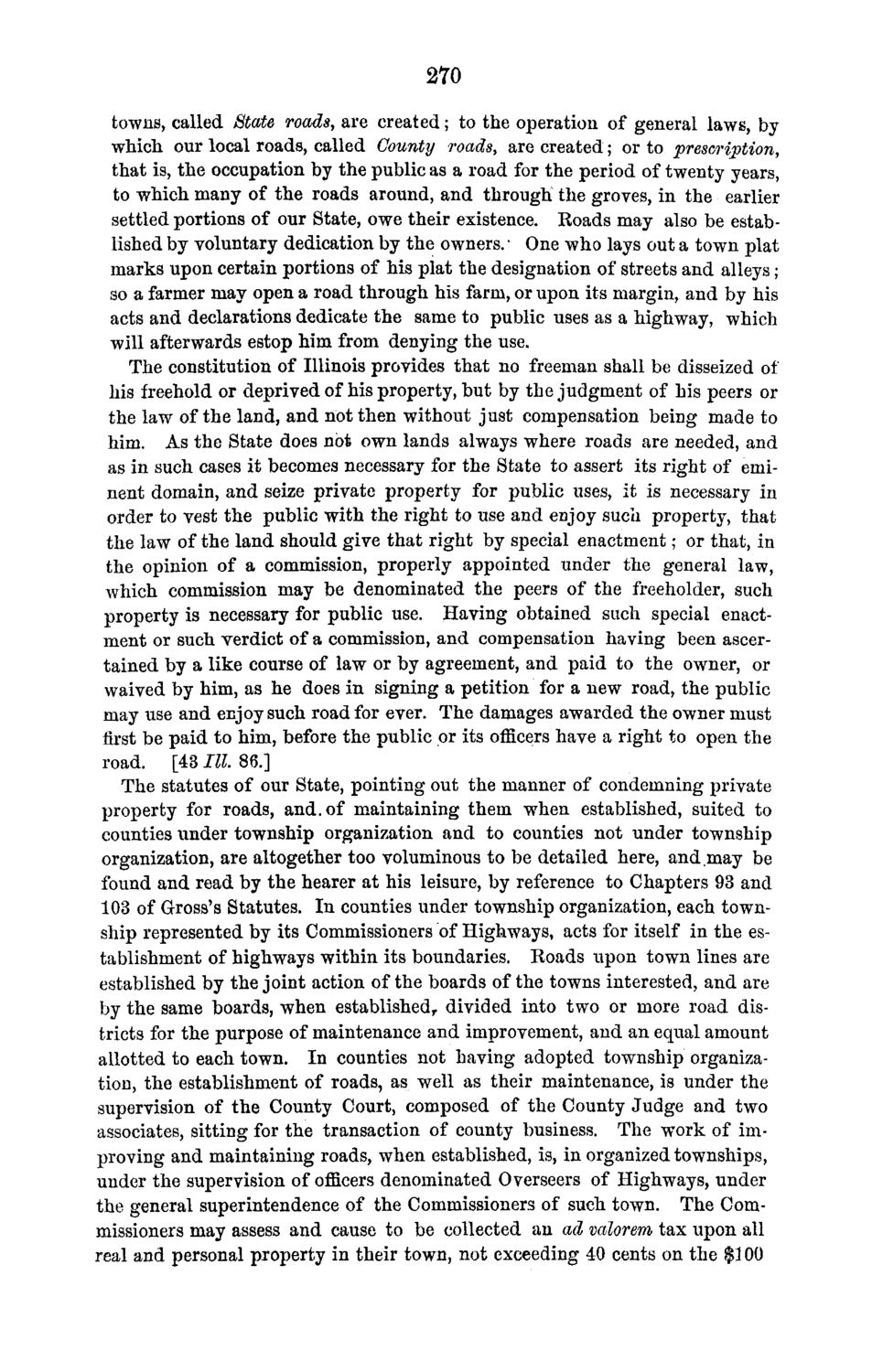| |
| |
Caption: Board of Trustees Minutes - 1870
This is a reduced-resolution page image for fast online browsing.

EXTRACTED TEXT FROM PAGE:
270 towns, called State roads, are created; to the operation of general laws, by which our local roads, called County roads, are created; or to 'prescription, that is, the occupation by the public as a road for the period of twenty years, to which many of the roads around, and through the groves, in the earlier settled portions of our State, owe their existence. Roads may also be established by voluntary dedication by the owners/ One who lays out a town plat marks upon certain portions of his plat the designation of streets and alleys; so a farmer may open a road through his farm, or upon its margin, and by his acts and declarations dedicate the same to public uses as a highway, which will afterwards estop him from denying the use. The constitution of Illinois provides that no freeman shall be disseized of his freehold or deprived of his property, but by the judgment of his peers or the law of the land, and not then without just compensation being made to him. As the State does not own lands always where roads are needed, and as in such cases it becomes necessary for the State to assert its right of eminent domain, and seize private property for public uses, it is necessary in order to vest the public with the right to use and enjoy such property, that the law of the land should give that right by special enactment; or that, in the opinion of a commission, properly appointed under the general law, which commission may be denominated the peers of the freeholder, such property is necessary for public use. Having obtained such special enactment or such verdict of a commission, and compensation having been ascertained by a like course of law or by agreement, and paid to the owner, or waived by him, as he does in signing a petition for a new road, the public may use and enjoy such road for ever. The damages awarded the owner must first be paid to him, before the public or its officers have a right to open the road. [43 III. 86.] The statutes of our State, pointing out the manner of condemning private property for roads, and. of maintaining them when established, suited to counties under township organization and to counties not under township organization, are altogether too voluminous to be detailed here, and may be found and read by the hearer at his leisure, by reference to Chapters 93 and 103 of Gross's Statutes. In counties under township organization, each township represented by its Commissioners of Highways, acts for itself in the establishment of highways within its boundaries. Roads upon town lines are established by the joint action of the boards of the towns interested, and are by the same boards, when established,, divided into two or more road districts for the purpose of maintenance and improvement, and an equal amount allotted to each town. In counties not having adopted township organization, the establishment of roads, as well as their maintenance, is under the supervision of the County Court, composed of the County Judge and two associates, sitting for the transaction of county business. The work of improving and maintaining roads, when established, is, in organized townships, under the supervision of officers denominated Overseers of Highways, under the general superintendence of the Commissioners of such town. The Commissioners may assess and cause to be collected an ad valorem tax upon all real and personal property in their town, not exceeding 40 cents on the $100
| |